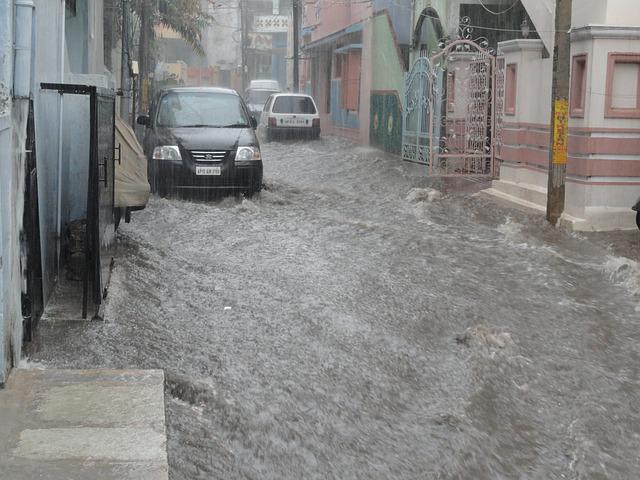TRANSCIPT
This is throw forward Thursday. I’m recording this in the second week of April 2022, when devastating rains have hit the Eastern province of South Africa, KwaZulu Natell, my home country. Every week I look at the future. I look at something which is probably going to happen sometime in the future and invite us to think about how it might impact us today and what we need to do in the light of what might happen. Obviously, climate change and extreme weather is a constant theme as we look ahead at the future.
It’s one of the massive forces that we know is going to impact the world around us. I have very little time for climate change and extreme weather deny us. It’s just ridiculous to deny what we can see with our own eyes. And this past week in South Africa, we have experienced extensive rain, and there has been flooding, dramatic flooding in the province of Kwazula Natal. Over 400 people are dead, thousands are missing, and there are billions of South African rains worth of damage to infrastructure.
I know that extreme weather has hit other parts of the world. I know that there are plenty of examples from around the world that we can look to and point to say these are the real world effects of shifting climate and changes in weather conditions. But of course, when it hits your home country, when it comes close to home, it has a bigger effect that’s simply being human. And so this week, I want to just remind us that this is not actually a future conversation. This is a now conversation with temperatures over the last month in both the North and the South poles higher than they’ve ever been before, with massive ice shelves falling off of Antarctica, which will over the next few weeks and months, ripple out to have impact on sea levels and to impact again the weather patterns of the world.
This is no longer something that we can say, well, sometime in the future, there will be an impact. We know that there will be real world impacts every day as we look at the news. It’s time it’s time for each of us to do more than just the minimum we can do to think about the climate and to think about the world around us and the natural resources that we use and abuse all the time. It’s time for each of us, for our companies that we work for, for the countries that we live in to take these issues much more seriously than we do.
What can you do to mitigate against extreme weather?
What can you do to reduce your carbon footprint and your impact on the world?
What can we do together? We need to do these things.
Now a sober reminder from South Africa to the rest of the world that we are going to see these news reports over and over again in many parts of the world.
It’s time to act now as always make sure that you join me every Thursday or this week.A little bit delayed as we were dealing with the consequences of this devastation in South Africa.
Join me as we look at the future and consider the implications for our world today.
I’ll see you next week. Bye.
For the past two decades, Graeme has worked with some of the world’s most recognized brands, travelling to over 80 countries in total, and speaking to around 100,000 people every year. He is the author of 5 best-selling books, and on faculty at 5 top global business schools.


